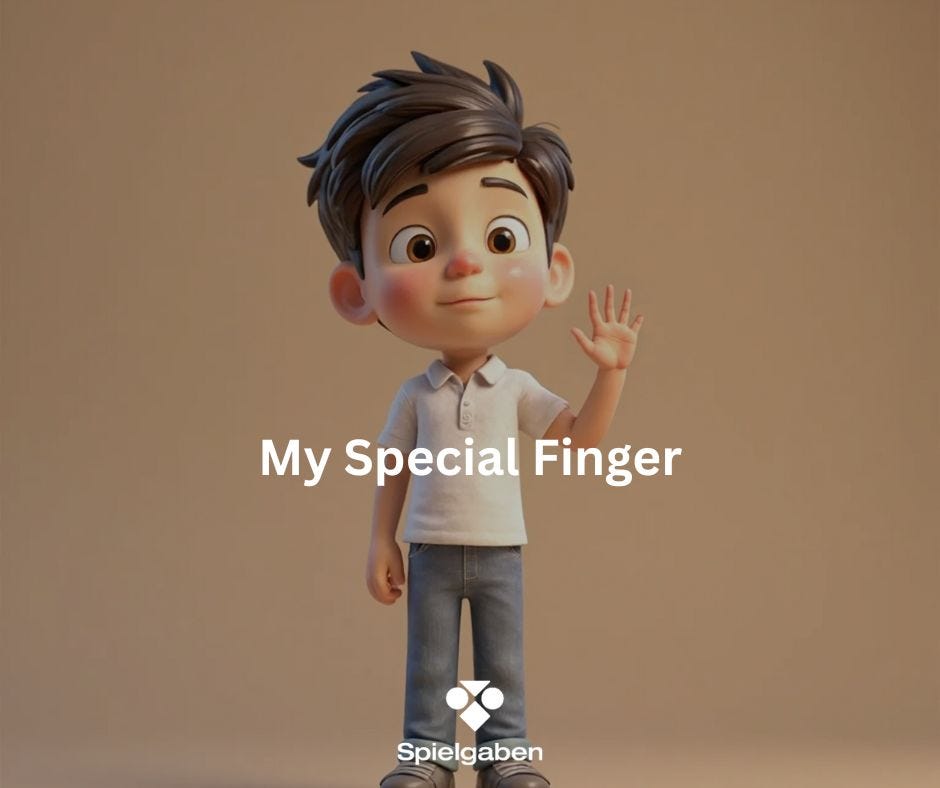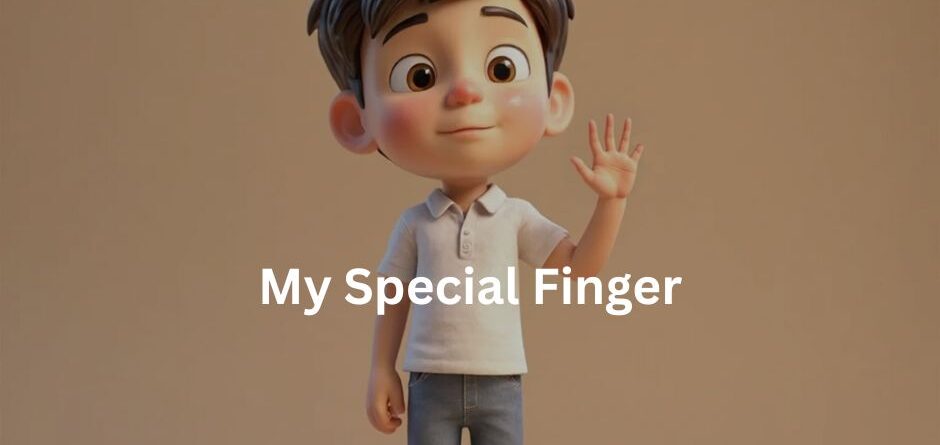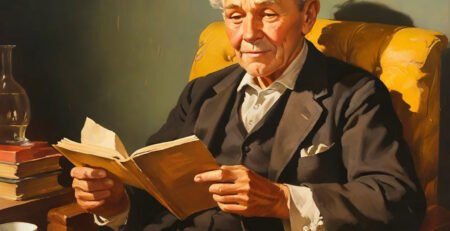My Special Finger

Ben hated going to school. Each morning, his stomach would knot up as he thought about facing his classmates. All because of his pinky fingers—they were unusually small, with only one knuckle, making them look different from everyone else’s.
“Dwarf fingers!” some boys would tease whenever they saw his hands. The name-calling had been going on for months, and Ben was tired of hiding his hands in his pockets.
One afternoon, as Ben trudged home with his head down, he passed the corner store. Outside sat Mr. Geoff, an older gentleman from the neighborhood who was enjoying an ice cream cone in the sunshine.
“Hello there, young friend!” Mr. Geoff called cheerfully. “How was your day?”
Ben looked up with sad eyes. “Not good. Not good at all.”
Mr. Geoff studied Ben’s face for a moment. “Why don’t you join me for an ice cream? My treat—I insist!”
Ben knew Mr. Geoff well. He was respected in the neighborhood and friends with Ben’s parents. Besides, Ben desperately needed someone to talk to, and Mr. Geoff had always been kind to him.
“Thank you,” Ben said quietly as Mr. Geoff handed him a cold treat from the store’s freezer.
Once Ben was seated, Mr. Geoff asked gently, “So, what’s troubling you today?”
Ben sighed. “I hate school because kids make fun of my freaky fingers.”
“Freaky fingers?” Mr. Geoff raised an eyebrow.
“Yes.” Ben reluctantly held out his hands. “My pinky fingers are tiny—only half the size of normal ones. The kids call them ‘dwarf fingers’ and laugh at me every day.”
Mr. Geoff nodded thoughtfully. “I think your fingers look unique and special. Did you know that I have something different about me too?”
“You do?” Ben asked, surprised.
“Indeed I do. I have only three toes on my right foot.”
Ben’s eyes widened. “Really?”
“Yes, really. When I was about your age, I lived on a farm. One day, I carelessly jumped into a field to retrieve my ball without noticing a tractor coming. The driver turned away as quickly as he could, but the blade still caught my foot. I lost my fourth and fifth toes completely.”
Mr. Geoff untied his shoe and removed his sock, showing Ben his foot with its noticeable scar and missing toes. Ben gasped.
“Does it still hurt?” he asked.
“Not anymore,” Mr. Geoff replied with a gentle smile. “But afterward, I couldn’t walk normally—I had a limp. And guess what the kids at school called me?”
“What?”
“Limp Boy,” Mr. Geoff said matter-of-factly. “I started hating school just like you. I wanted to be alone all the time.”
Ben felt a connection with Mr. Geoff. “What changed for you?”
“I met Sally, who later became my wife. She was in my class, and after hearing about my accident, she told me something I never forgot. She said I was actually lucky because her brother had died in a car accident years before. She suggested I ignore what others said and turn my challenge into an advantage.”
Ben frowned. “An advantage? How could something bad be an advantage?”
Mr. Geoff’s eyes twinkled. “That’s exactly what I thought! At first, I just thanked her and tried to ignore the bullies. But with all the time I spent alone, I started thinking about what she said.”
He took another bite of his ice cream before continuing. “I realized I understood something most people didn’t—what it’s like to struggle with mobility. The crutches I used were uncomfortable and bulky, especially for a kid.
So, I asked my dad, who was a mechanical engineer, to help me design better ones.”
“What happened?” Ben leaned forward, forgetting his ice cream was melting.
“My dad and I worked for weeks creating crutches that were lighter, adjustable with just one button, and could fold up three times to fit in a small pouch. We even added spots for cool metallic stickers so kids could personalize them.”
Mr. Geoff’s face lit up. “We patented the design, and three major manufacturers wanted it! We chose the company most dedicated to helping disabled children. That little invention meant I never had to worry about money again, and I’ve spent my life helping others with disabilities. Without my accident, I might never have noticed those who needed help.”
Ben sat speechless, ice cream dripping onto his fingers.
“Do you think I could do something positive with my…different fingers?” he finally asked.
Mr. Geoff placed a gentle hand on Ben’s shoulder. “You bet I do. I see greatness in you, Ben. You’re young with your whole future ahead of you. Turn what makes you different into a gift that can help others. And remember, my door is always open if you need me.“
Ben felt something shift inside him. He thanked Mr. Geoff and headed home, thinking deeply about their conversation.
The next day at school, the same boys tried to tease him about his “dwarf fingers,” but this time, Ben didn’t feel the same sting. He simply smiled and walked past them, his mind busy with new ideas.
Instead of seeing his small pinky fingers as something to be ashamed of, Ben began to view them as a reminder that everyone is different in their own way—and that these differences could become strengths. From that day forward, he focused his energy on learning and finding ways to help others who might feel different too.
His special fingers weren’t a misfortune after all—they were his unique reminder to look for the special gifts in everyone he met.













LEAVE A COMMENT